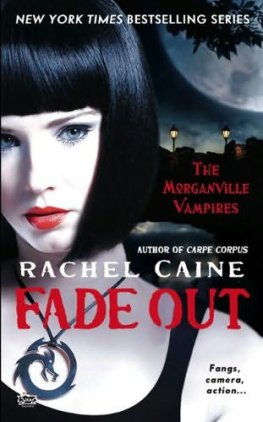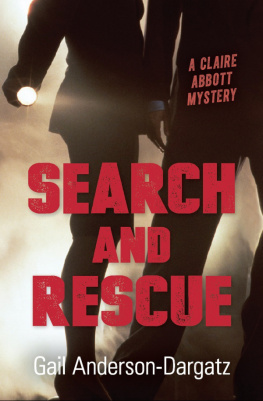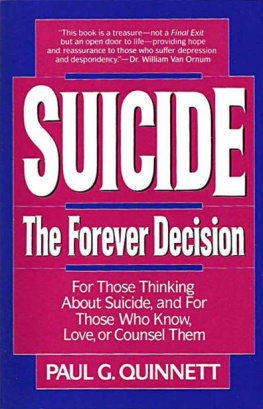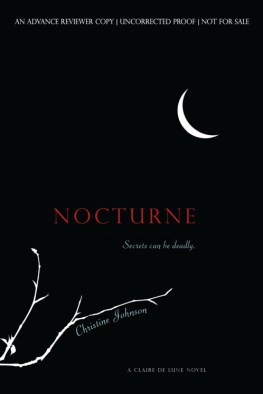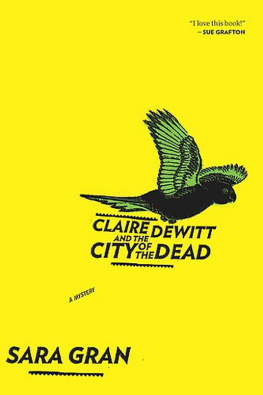Carmiel Banasky
The Suicide of Claire Bishop
Things not yet happened are already here!
I feel that. Theyre just out there:
a murmuring mass outside the barrier.
They can only slip in one by one. They want to slip in. Why? They do one by one. I am the turnstile.
Tomas Transtrmer, Guard Duty
On the surface of the table his index finger, as though it were a pencil, moved back and forth across the shiny Formica with the insistent gesture of drawing. His eyes no longer appeared to focus upon any particular object, but rather to see beyond the present place and time. Through his finger as it moved, his entire being seemed to flow from him into the ideal void where reality, untouched and unknown, is always waiting to be discovered.
James Lord, A Giacometti Portrait

Claire could not look at herself. She was not allowed. The artist had forbade it, touching the top of Claires hand with her own.
Not until its finished.
And it nearly was. The portrait was on the easel in the corner of the den, covered only in a purple, velvet drape cleverly propped out two inches so as not to touch the wet canvas. Claire stood in the center of the room, facing the back of the easel, tapping her fingers on her leg as if counting the seconds until she could look. The portrait had been Freddies idea of a gift for her thirty-fifth birthday. Shed hated him for it, until the painter arrived that first day.
Now the painter was in the kitchen, cleaning her brushes. Most nights the artist concealed the painting by knotting the gold-fringed drape tightly to the bottom of the easel. Tonight it hung loose. It was childish, this great pulse toward the painting. Come look at me, look at me. Not tomorrow or in ten minutes but now. It was a giddy desire. Desire for the forbidden, yes, but it was more than that. There was a secret in it, the way trees held secrets or the rusting fire escapes in the alleyways she rushed passed on Bleeker. The gleaming drape beckoned just as the young painter always seemed to, though Claire must be mistaken about that: what could the girl possibly want with her? But Claire was a woman of restraint, respect for rules and boundaries. She would not look. She would look.
She circled the easel, circled it twice a tiger. She glanced out the French doors into the hallway. She whispered the artists name to herself once: Nicolette. Something inside her could have pirouetted out of control.
She held the gold fringe of the drape. She lifted.
Nicolette entered with a fistful of brushes. Baby oil dripped from the bristles, greased her fingertips.
Claire dropped the drape, having seen nothing. Was she disappointed? Only, perhaps, at being caught. She wouldnt want Nicolette to think her disrespectful. She knelt on the blue drop cloth below the easel, straightening it, looking busy. She billowed the pale blue sheet and it swelled with air. Her own private ocean.
I think Ill head to the roof for a smoke before I go, the painter said, smiling down at Claire.
Claire, on all fours in her wool pencil skirt, looked over her shoulder. Nicolette held the light from the hall like a shawl draped across her arms. It was how light should work on a woman. She was beautiful, but she held herself protectively under that smile, as if no one had ever told her so.
Claire, certainly, was not going to be the one to break the news. She rose hurriedly, her wool skirt sticking to her stockings. Ill come with you.
Claire hastened the artist down the hall, past the vintage settee they werent allowed to sit on and from which Nicolette grabbed the coat shed thrown across it. Claire was terribly embarrassed of her wealth under Nicolettes gaze the native masks on the wall, from her and Freddies brief vacation to Cuba years ago, the glass case in the den full of priceless Italian porcelain clowns. Claire had the urge to throw the whole lot of them out the window. Nicolette, with her tight black pants and cropped dark hair she could have been one of the Village Beatniks squatting in the next building over who always glowered at Claire as though she didnt belong a toe below Thirty-Fourth Street. They knew, the all did, that she and Freddie had the means to live anywhere in the city moving to the West Village had been an experiment to indulge Claire.
On the roof, the water tower hung in the dusk air above them, a suspended animal skeleton. A zebra, Claire decided. Shed only seen a zebra once, in Cuba, in someones yard. She sometimes found she missed that zebra. By the time shed pointed it out to Freddie, it had disappeared hed called her crazy and hadnt believed her. Just as well, shed thought then, the zebra is mine.
The rusted iron hummed and swayed in the breeze. Claire had the sudden impulse to tell Nicolette about the zebra. Nicolette would believe her.
To tell the truth, I dont smoke, Claire said. Freddie hates it.
The artist was busy rolling her own cigarette on the ledge, shaking loose tobacco from a small pouch like a regular dockworker, trying not to lose it in the wind. What Freddie doesnt know, Nicolette said. She licked the paper, handed the finished product to Claire, and lit it for her. Her hand grazed Claires cheek. Nicolette smelled dangerous. They stood close together, facing north, peering over to the street nine stories below, sharing the cigarette. Rebellious. But the wind stole her smoke so quickly, it was as if shed let nothing out.
I was up there last week. Uptown, Nicolette said, gesturing north toward the high-rises, doing a portrait of this blubber-man. I was up on his roof, smoking, when I realized I was in the view, I didnt have a view. Nicolette held Claires gaze. Not here though, she said. Here I have the perfect view.
I love it up here. Claire averted her eyes, blushing. It makes up for everything else.
Even Freddie?
What a question to ask! She should be furious. Why was she not furious? I wouldnt have this view without him.
The wind grew louder than their voices. It hit Claires ears rhythmically, beat her clean like a rug.
I dont know why, Nicolette said loudly, but I used to imagine all the skyscrapers were ladies waiting to go dancing. She laughed into the wind.
I like that, Claire said. Ladies waiting forever.
The last of the setting sun charged off the west side of the buildings and they let it blind them.
Dont you want children, Claire? Since that whatever disease isnt hereditary. Its terrible when the smart ones dont.
It was a wonder, the information Nicolette had extracted from her during their sessions. In order to paint Claire, Nicolette had said she had to know her. There were people Claire had known for years who knew nothing about her parents or her childhood. But to this perfect stranger, Claire had found herself describing her grandmothers operatic voice, the disease Claire once believed shed inherit, the grounds of the asylum. There was something thrilling about the interrogation. No one had ever demanded Claire talk about herself. And yet the conversation had felt natural, or at least as natural as posing for a portrait; both were made of the same intimacy. Shed let Nicolette crack into her like a crab shell.
And in return, Nicolette had listened. The artist had closed her eyes and listened. Shed seemed, almost, to swoon.
But Claire wasnt posing on the couch anymore. Why dont you have children then? Claire said in answer.
In the settling dark, it seemed Nicolette was pushing something over to her with her eyes, but Claire didnt know what, or how to receive it. Then the painter looked away.



